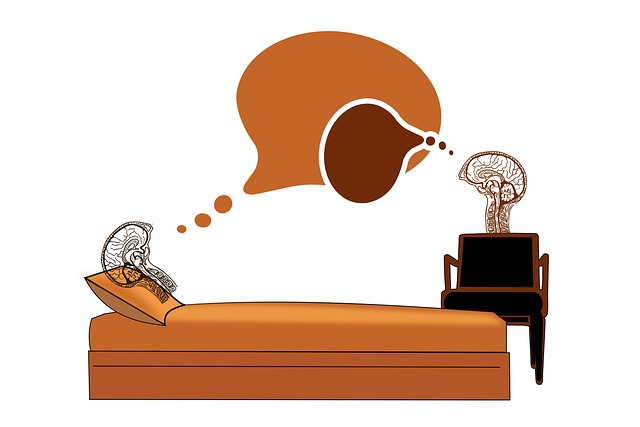Cognitive Behavioral Therapy (CBT) is an effective, goal-oriented approach to treating depression and anxiety by challenging negative thought patterns and behaviors. Through techniques like cognitive restructuring, behavioral activation, and mindfulness, CBT equips individuals with coping strategies to manage symptoms, reduce stress, and enhance overall well-being. Backed by extensive research, CBT has proven successful in reducing depression and anxiety symptoms, fostering resilience, and driving lasting positive changes in thinking and behavior. Finding a qualified CBT specialist is crucial for effective management; recommendations from trusted sources and specialized therapists with relevant experience and qualifications are key steps towards successful treatment.
Discover the power of CBT therapy as a game-changer in managing depression and anxiety. This article offers a comprehensive guide, delving into the core principles of Cognitive Behavioral Therapy (CBT) and its effectiveness. From understanding the therapy’s foundation to exploring key techniques like cognitive restructuring, you’ll gain insights on how CBT rewire your mind. We’ll also highlight research-backed benefits, provide tips for finding a qualified therapist, ensuring you’re well-equipped to embark on your journey towards mental wellness.
Understanding CBT Therapy: A Brief Overview

CBT, or Cognitive Behavioral Therapy, is a structured and goal-oriented form of psychotherapy that focuses on identifying and changing negative thought patterns and behaviors contributing to depression and anxiety. By modifying these thoughts and actions, individuals can learn to manage their symptoms more effectively.
This therapy type encourages patients to actively participate in their healing process, challenging them to question and reframe negative or distorted thinking. Through CBT, individuals gain valuable tools to cope with difficult emotions, reduce stress, and improve overall well-being. It’s a powerful approach that has shown remarkable results in treating various mental health concerns, especially depression and anxiety disorders.
How CBT Works for Depression

Cognitive Behavioral Therapy (CBT) is a highly effective approach to managing depression and anxiety. It works by helping individuals identify and challenge negative thought patterns and behaviors that contribute to their low mood and feelings of worry or fear. CBT therapy focuses on the present and future, encouraging patients to replace unhelpful thoughts with more realistic and positive ones. This process involves learning to recognize cognitive distortions—distortions in thinking that can make situations seem worse than they are.
By modifying these thought patterns, CBT empowers individuals to change their behaviors and emotional responses. It teaches practical coping strategies to deal with depressive or anxious symptoms, such as relaxation techniques, problem-solving skills, and ways to challenge negative self-talk. Through this therapeutic process, people can gain a new perspective on their challenges, develop healthier habits, and improve their overall well-being.
The Role of Cognitive Restructuring

Cognitive Restructuring is a key component of CBT therapy, designed to challenge and change negative thought patterns that contribute to depression and anxiety. By identifying distorted or unhelpful thoughts, individuals learn to replace them with more realistic and balanced perspectives. This process helps to break free from the cycle of negative thinking that can exacerbate these conditions.
Through structured conversations guided by a trained therapist, individuals are encouraged to examine their beliefs and assumptions, often uncovering cognitive biases that have developed over time. By learning to recognize and question these thought patterns, individuals gain valuable coping strategies. This empowerment allows them to manage symptoms more effectively and improve overall well-being, making CBT therapy a powerful tool in the fight against depression and anxiety.
Techniques and Exercises in CBT

Cognitive Behavioral Therapy (CBT) employs a range of techniques and exercises to address depression and anxiety effectively. One core method is cognitive restructuring, where individuals learn to identify and challenge negative thought patterns that contribute to their emotional distress. By replacing these with more realistic and positive thoughts, CBT helps people gain a healthier perspective, which can significantly alleviate symptoms of depression and anxiety.
Another key exercise is behavioral activation, encouraging individuals to engage in activities they used to enjoy but may have avoided due to their mental health. This involves setting achievable goals and gradually stepping out of comfort zones to foster a sense of accomplishment and improve overall well-being. Additionally, mindfulness techniques are often incorporated to help individuals stay present and reduce rumination on negative thoughts or experiences.
Benefits and Effectiveness Proven by Research

CBT therapy for depression and anxiety has been extensively researched, demonstrating its significant benefits and effectiveness in treating these common mental health disorders. Numerous studies have shown that Cognitive Behavioral Therapy (CBT) can lead to substantial improvements in symptoms, offering individuals a powerful tool to manage their mental well-being.
The success of CBT lies in its ability to empower individuals by teaching them practical strategies to identify and challenge negative thought patterns and behaviors. Through this process, CBT helps people gain a deeper understanding of their emotions, develop healthier coping mechanisms, and gradually improve their overall mood and quality of life. Research has consistently shown that CBT can reduce symptoms of depression and anxiety, increase resilience, and promote long-lasting positive changes in thinking and behaving.
Finding and Working with a CBT Therapist

Finding the right CBT therapist is a crucial step in your journey towards managing depression and anxiety effectively. When searching for a cognitive behavioural therapist, consider seeking recommendations from trusted sources, such as medical professionals or support groups. Many people have found success through word-of-mouth referrals, ensuring they receive high-quality care.
Additionally, look for therapists who specialise in CBT and have experience treating similar conditions. Check their qualifications, certifications, and training to ensure they are well-equipped to handle your specific needs. It’s essential to feel comfortable and connected with your therapist, as this fosters a safe space for honest exploration of thoughts and behaviours during the therapeutic process.
